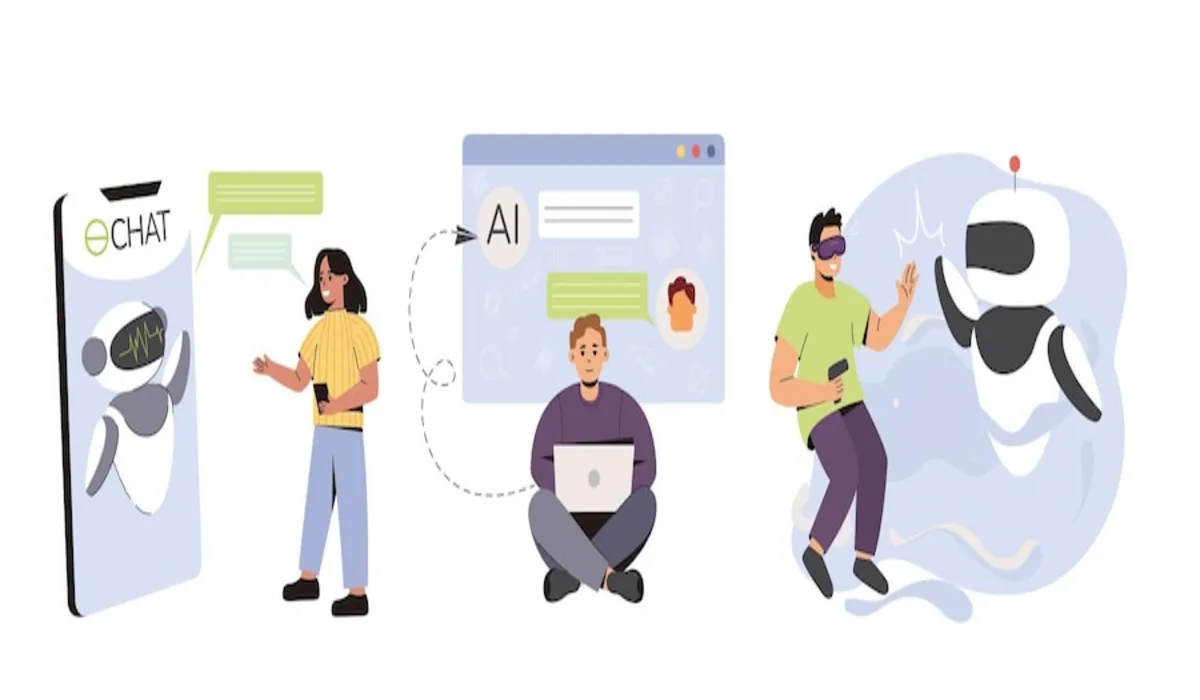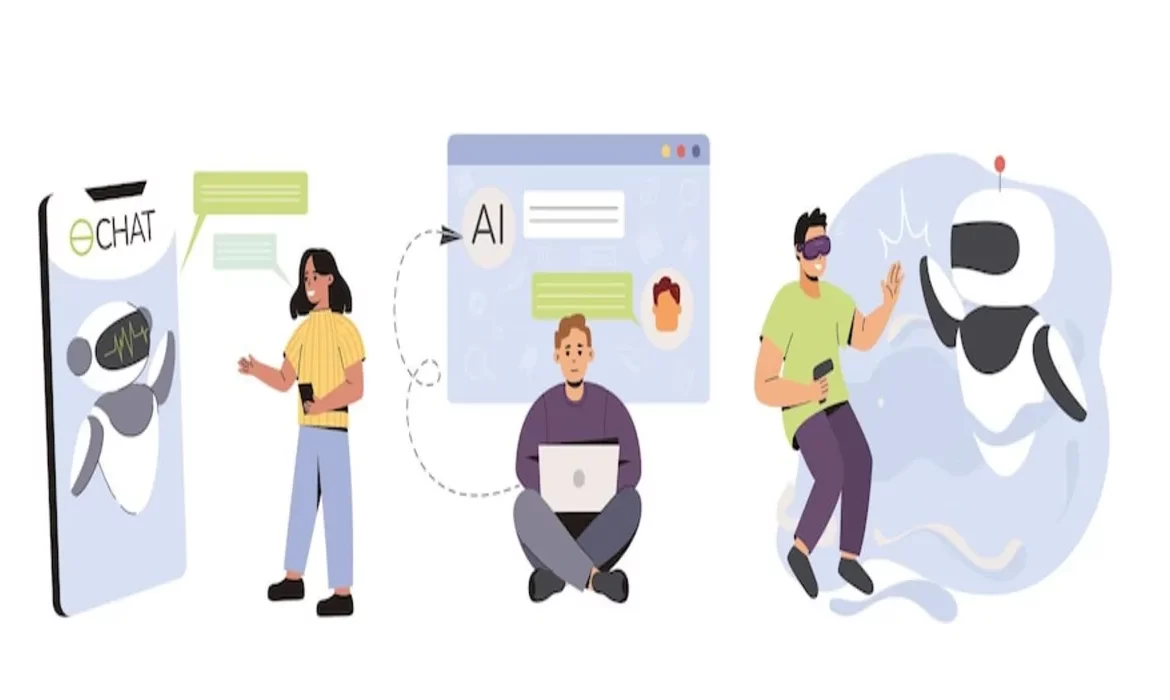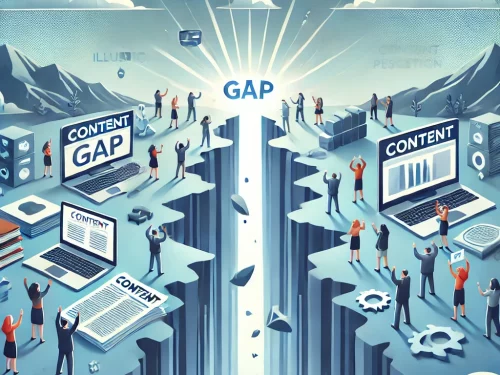
In today’s digital world, marketing is evolving at a rapid pace, and businesses are constantly looking for innovative ways to engage with their audience. One of the most significant shifts in recent years has been the rise of conversational marketing. This approach focuses on direct, real-time communication with customers, typically through chatbots and AI assistants, to provide an enhanced, personalized experience. As the digital landscape becomes more dynamic, conversational marketing is quickly becoming a cornerstone of customer engagement strategies. But what exactly is conversational AI marketing, and how are chatbots and AI assistants shaping the future of marketing?
What is Conversational AI Marketing?
Conversational AI marketing refers to using artificial intelligence tools, such as chatbots and AI assistants, to engage with customers in real time. These technologies can simulate human-like conversations, enabling businesses to interact with customers more effectively and efficiently. By utilizing natural language processing (NLP) and machine learning algorithms, conversational AI allows companies to provide instant responses, personalized recommendations, and tailored content. The beauty of this technology lies in its ability to offer seamless and meaningful conversations, creating a more engaging customer experience. Want to learn how AI-powered chatbots are transforming customer engagement? Check out this insightful post on how AI-powered chatbots revolutionize customer engagement here.
Benefits of Conversational Marketing
Conversational marketing provides a range of advantages for businesses looking to improve customer engagement and conversion rates. The key benefits include:
- Instant Communication: Chatbots and AI assistants are available 24/7, providing customers with immediate responses to their inquiries, regardless of the time of day.
- Personalized Experience: By leveraging customer data, conversational AI can tailor interactions, making each conversation feel unique and relevant to the user’s needs.
- Increased Efficiency: Automated responses streamline the customer journey, reducing the time spent on manual support tasks and freeing up resources for other important business functions.
- Higher Conversion Rates: Engaging customers in real-time increases the chances of converting leads into paying customers, as personalized interactions tend to drive stronger emotional connections and trust.
- Cost-Effective: By automating communication, businesses can reduce the need for large customer support teams, ultimately cutting down on operational costs.
How Chatbots and AI Assistants Power Conversational Marketing?
Chatbots and AI assistants are the backbone of conversational marketing. These tools use advanced algorithms to interpret and respond to customer queries in a natural, human-like manner. Chatbots can be integrated into various platforms like websites, social media, and messaging apps to provide seamless communication across different channels.
The primary role of chatbots is to handle simple customer inquiries, such as answering frequently asked questions or assisting with product recommendations. On the other hand, AI assistants are more advanced, capable of understanding context, learning from previous interactions, and providing more complex solutions. Together, they help automate and streamline the customer journey, ensuring that no customer is left unattended. Learn more about AI-based business ideas and how these technologies are changing the landscape here.
Examples of Conversational Marketing in Action
Several brands have already adopted conversational marketing strategies to enhance their customer engagement efforts. Some examples include:
- Sephora uses an AI-powered chatbot to provide personalized product recommendations based on customer preferences and past purchases. This makes it easier for shoppers to discover products that are most relevant to them.
- H&M implemented a chatbot on their website and mobile app that assists customers in selecting outfits based on style preferences and upcoming events. The bot also offers styling tips and suggestions, making shopping more interactive.
- Merriam-Webster uses a conversational approach to engage its users by responding to language-related queries through social media platforms, building deeper relationships with its audience.
These examples show how conversational marketing can be applied in various industries to improve customer interactions, boost engagement, and drive sales.
Challenges of Conversational Marketing
While conversational marketing offers numerous benefits, it’s not without its challenges. Some of the most common hurdles businesses face when implementing chatbots and AI assistants include:
- Integration Issues: Integrating AI technology with existing systems and platforms can be complex and time-consuming, requiring significant resources.
- Maintaining a Human Touch: Although AI can simulate human conversations, it can still fall short in understanding nuanced emotions or complex requests. Striking the right balance between automation and human interaction is crucial to ensure customer satisfaction.
- Data Privacy Concerns: Customers may have concerns about how their data is being used and stored by AI-powered systems. Ensuring that data privacy and security measures are in place is critical to maintaining trust.
- Keeping Up with Evolving Technology: The field of AI is rapidly evolving, and businesses must constantly update and improve their AI tools to stay competitive. This can be a significant investment for smaller businesses.
How Are Chatbots Used in Marketing?
Chatbots play a crucial role in marketing by enabling businesses to engage with customers in real time. They can handle a wide range of tasks, from answering common questions and providing product recommendations to assisting with transactions and scheduling appointments. By automating these tasks, chatbots help businesses reduce response time, increase customer satisfaction, and ultimately drive conversions. Additionally, chatbots can be used to gather valuable insights from customers, such as preferences and feedback, which can be used to refine marketing strategies.
How to Market AI Chatbots?
Marketing AI chatbots involves promoting their benefits to customers and businesses alike. To successfully market AI chatbots, businesses should focus on demonstrating how these tools can streamline operations, enhance customer experiences, and improve conversion rates. Educational content, such as blog posts, case studies, and whitepapers, can be used to highlight the value of AI chatbots. Additionally, businesses can offer free trials or demos to give potential customers a hands-on experience of how chatbots can benefit them.
The Future of Conversational Marketing
As AI technology continues to evolve, the future of conversational marketing looks bright. Businesses will increasingly rely on chatbots and AI assistants to deliver highly personalized, seamless, and engaging customer experiences. Advances in machine learning and natural language processing will enable AI to better understand and predict customer needs, leading to even more efficient and effective marketing strategies. Furthermore, with the growing use of voice assistants like Alexa and Siri, businesses will need to adapt their conversational marketing strategies to include voice-based interactions.
In conclusion, conversational marketing is rapidly changing the way businesses interact with customers. By leveraging chatbots and AI assistants, companies can provide instant, personalized, and efficient experiences that drive engagement, increase conversions, and enhance customer loyalty. As the technology continues to improve, the future of conversational marketing holds endless possibilities for businesses to engage with their audience in innovative ways.
EvenDigit
EvenDigit is an award-winning Digital Marketing agency, a brand owned by Softude (formerly Systematix Infotech) – A CMMI Level 5 Company. Softude creates leading-edge digital transformation solutions to help domain-leading businesses and innovative startups deliver to excel.
We are a team of 70+ enthusiastic millennials who are experienced, result-driven, and hard-wired digital marketers, and that collectively makes us EvenDigit. Read More





